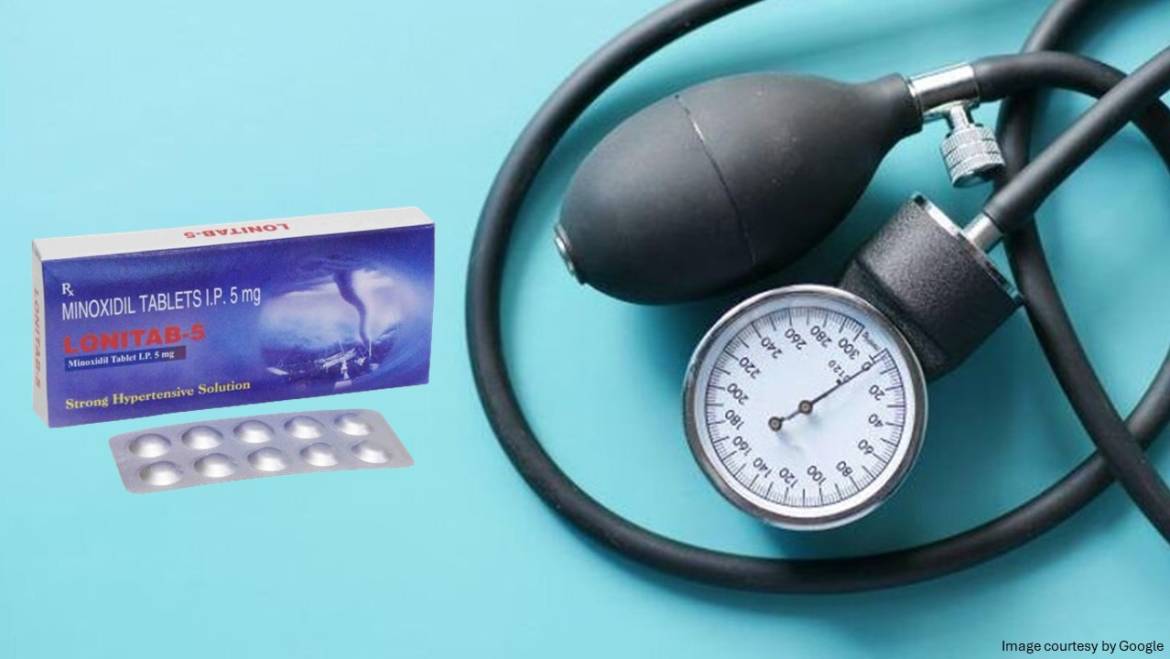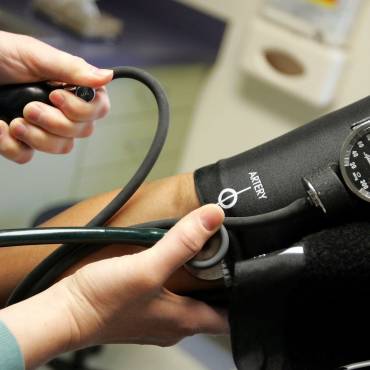Lonitab 5 mg containing Minoxidil was initially developed as a potent vasodilator agent for treating severe hypertension. It is an effective treatment for high blood pressure. However, owing to the significant adverse effects of oral minoxidil use, this medication is currently used only for patients with resistant hypertension who don’t respond adequately to the maximum doses of three different antihypertensive medications. These medications typically include a combination of a calcium channel blocker, a diuretic, an angiotensin-converting enzyme inhibitor, or an angiotensin receptor blocker. These medications are generally given at the highest daily doses a patient can tolerate.
Lonitab 5 mg: A Potent Treatment for Resistant Hypertension
Minoxidil got approval from the FDA for maintaining blood pressure levels in patients with resistant hypertension. Symptoms of high blood pressure include chest pain, dizziness, trouble breathing, severe headaches, blurred vision, anxiety, vomiting, and nausea.
Being a vasodilator, Minoxidil causes the relaxation of blood vessels so that blood flows more easily. This helps to control high blood pressure. You must speak to your healthcare provider if you do not feel better or worse.
Administration
Lonitab is marketed as an oral tablet formulation for both male and female patients. Follow your doctor’s prescription to take the correct dosage of this medicine. The recommended initial dosage of Minoxidil for hypertensive therapy is 5 mg once a day for patients younger than twelve years of age. This can gradually increase to a maximum of 40 mg per day. Higher doses of Minoxidil should be equally divided and given to individuals two to three times daily to prevent excessive hypotension. For managing resistant hypertension, researchers recommend Lonitab alongside a loop, a beta blocker, and a diuretic to mitigate potential adverse effects in patients.
Caution should be taken when considering its use in patients with hepatic insufficiency. When dosing lonitab, it is advisable to consider dose reduction for individuals with kidney problems. It is not advisable to use this medication in pregnant women. As Minoxidil is excreted in the breast, its use is not recommended in breastfeeding women. The medication should be initiated at a lower dose in older patients.

Adverse effects
This medicine for high blood pressure is also associated with significant adverse effects, including pericardial effusion (build-up of fluid in the space around the heart) that can progress to cardiac tamponade (pressure on the heart that occurs when there is a build-up of blood or fluid in the space between the heart muscles and the pericardium (outer covering sac) of the heart. Reports of angina pectoris (severe chest pain) worsening have also been reported in patients using this medicine. As a result, careful oversight is important when administering Minoxidil to patients. Patients getting guanethidine along with Minoxidil may develop symptoms of low blood pressure. Low blood pressure symptoms include blurry vision, confusion, fainting, light-headedness, sleepiness, dizziness, and weakness. Severe symptoms require low blood pressure treatment; therefore, informing your doctor if you take guanethidine is important. In this case, you may be prescribed medicine for low blood pressure.
Lonitab is used due to the substantial risk of severe or orthostatic hypotension. Coadministration of beta blockers with Lonitab is advised to help manage the increased heart workload and tachycardia. The oral medication should be used with a loop diuretic to prevent severe fluid accumulation in a patient’s body.
Contraindications
Lonitab should not be used in patients with a known history of hypersensitivity to the medication or its constituents, including propylene glycol. The utilization of this medication is not recommended for pregnant and breastfeeding women. The medicine is also contraindicated in patients younger than eighteen years of age. Do not take Lonitab if your high blood pressure is caused by hormones from a tumor, usually near the kidneys.
Minoxidil tablets allow salt and water to remain in your body. Excessive salt and water in the body can make you feel breathless, sick, wheezy, and tired and can stop the medication from working properly. Lonitab 5 mg also makes your beat faster. To avoid these problems, your healthcare professional will prescribe two other medications for you to take with Minoxidil. One is a diuretic to help your body eliminate excess water; the second is a beta blocker or similar medicine to stop your beating too fast or angina pain. If you have been prescribed a low-salt diet, follow it carefully. You may be advised to weigh yourself daily and keep an accurate weight record while taking this blood pressure medicine. You should inform your healthcare provider if you gain more than 1 to 1.5 kg. The cause could be the presence of extra fluid in the body.
Conclusion
Lonitab 5 mg containing Minoxidil is prescribed as a treatment option for resistant hypertension in patients. Researchers recommend consulting a hypertension specialist for cases of resistant hypertension. Research studies demonstrated increased blood pressure control in patients with resistant hypertension under healthcare professionals’ guidance.
To ensure the best outcomes for patients receiving Lonitab 5 mg for hypertension, effective teamwork and open communication. You may also be advised with high blood pressure remedies like eating healthy, exercising regularly, and drinking adequate water.
admin
Latest posts by admin (see all)
- What is Triluma Cream? Uses, Benefits, and How It Works for Skin - December 26, 2024
- What Causes Dark Spots? Understanding the Science of Hyperpigmentation and How Skin Lightening Products Help - December 26, 2024
- Tretinoin Gel vs. Cream: Which Formulation is Right for Your Skin? - December 20, 2024



